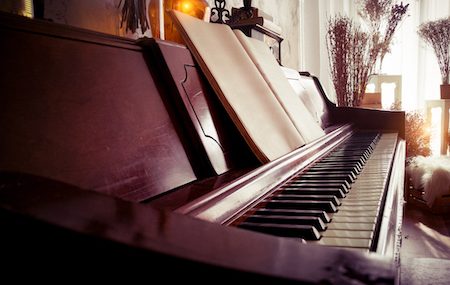You’ve decided to buy a piano for your kids to learn music, something they will carry with them for life.
A piano isn’t something you can hide away or tuck into a corner and expect your kids to remember to play. It’s an instrument you should think about carefully as you decide where to place it. Where is the best place in the house to place a piano? We have a few words of advice.
Let’s start with room conditions. Pianos need consistent temperatures and humidity levels to thrive. That means you don’t want to place it in a dark, warm, or moist room where airflow doesn’t keep it well vented. Mold is never a good thing – that’s doubly true with your piano. Mold can weaken the wood and impact the wires and felt inside the piano – all of which impact the condition of your piano.
Humidity is probably one of the biggest reasons why pianos deteriorate so quickly. It’s what can make your piano go out of tune. Pay attention to how close you place a piano to windows, which can allow cold to infiltrate the wood.
Vents, registers, fireplaces, and wood stoves can also impact the quality of the wood, drying it out and causing fluctuation in the way the piano sounds.
Pianos thrive best when everything remains much the same. Try for 45 to 70 percent humidity levels, and temperatures between 68 and 72 degrees.
Before you move a piano in, consider your rooms carefully. Going up to the second floor or above may require additional costs to place it there. Grand pianos are different from uprights, though both need special care to ensure they move safely. Taking a piano down a narrow hallway will mean greater potential hazards for both the piano and your walls.
We often tell clients that the center of a room is the best place for a piano. It cuts down on the chance of sunlight streaming through the windows, and keeps it far away from vents and registers. It allows maximum airflow to ensure both humidity and temperatures remain fairly constant.
While many choose to place it in a busy place in the home, think twice about just how busy the room is. It’ll be harder to get in daily practice tf there is never time to play without disturbing other activities. One option can be to ensure your new piano comes equipped with headphones, so your child can play no matter what’s happening in the room.
What other concerns do you have about bringing a new piano into your home?


